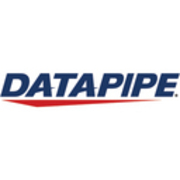Cloud Analytics transforms raw data into actionable insights, enhancing decision-making capabilities. It leverages scalable cloud resources for data collection, processing, and analysis, providing businesses with a competitive edge.
Cloud Analytics offers a flexible approach to handling vast datasets, integrating seamlessly with existing business tools to optimize data analysis. Companies utilize this technology to gain deeper insights into their operations, customer behavior, and market trends without the constraints of on-premises infrastructure. It supports real-time analytics, enabling immediate access to critical information for timely decision-making.
What are the key features of Cloud Analytics?In industries like retail and finance, Cloud Analytics is used to analyze consumer purchase patterns and risk assessments, respectively. Healthcare utilizes it for patient data management and predictive health insights, enhancing service delivery and patient care.
Cloud Analytics provides immense value for organizations by delivering comprehensive insights from data. It helps in strategic planning, resource allocation, and improving customer interactions, maintaining a competitive position in the fast-paced digital landscape.
| Product | Market Share (%) |
|---|---|
| IBM Turbonomic | 24.3% |
| Spot | 20.3% |
| Oracle Big Data Cloud Service Compute Edition | 13.7% |
| Other | 41.7% |
















Cloud Analytics enhances business decision-making by providing real-time data insights and advanced data processing capabilities. You can access large volumes of data quickly, helping you identify trends and patterns to make informed strategic decisions. With Cloud Analytics, collaboration is seamless as data is accessible to all stakeholders across various devices, boosting efficiency and reducing the time to insight for crucial business moves.
What are the cost benefits of using Cloud Analytics solutions?Adopting Cloud Analytics can lead to significant cost savings compared to traditional on-premise solutions. You pay for only what you use, eliminating the need for expensive hardware and maintenance costs. The scalability of Cloud Analytics allows for adjusting resources based on demand, optimizing cost-efficiency. Additionally, the subscription-based model helps in better budget management, giving you predictable financial planning.
How do Cloud Analytics solutions enhance data security?Cloud Analytics providers invest heavily in high-level security protocols to protect your data. With features such as encryption, identity management, and regular security audits, your data is well-guarded against breaches. Additionally, many providers comply with global regulations, ensuring adherence to data protection standards. You gain not only robust security but also peace of mind, allowing you to focus on analyzing your data without security concerns.
What role does AI play in Cloud Analytics?AI significantly boosts the capabilities of Cloud Analytics by enabling predictive analytics and automation of routine tasks. With AI algorithms, you can forecast trends, identify anomalies, and derive actionable insights fast. This allows for more proactive decision-making and operational efficiency. AI's role in automating data processing frees you to focus on strategic initiatives and innovation within your business.
Can Cloud Analytics integrate with existing business systems?Cloud Analytics solutions are designed to integrate seamlessly with your existing business systems. This interoperability ensures that you can leverage your current IT infrastructure without heavy modifications. Most cloud providers offer APIs and connectors that facilitate easy integration with CRM, ERP, and other critical business applications, ensuring a smooth data flow and holistic data analysis across your organization.